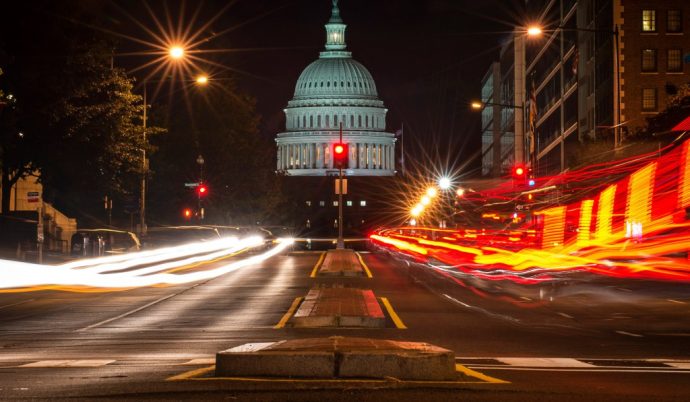Here is Jay Cost writing at National Review about the continuing problem of Americans taking time to complain but failing to fulfill their civic duty to engage:
They should keep public officials on track but won’t as long as they remain disengaged.
The Fox News poll released last week is one of the latest to suggest that public opinion has settled in with respect to President Donald Trump. His job approval rating continues to bounce around in the low to mid 40s, while his disapproval rating is in the low to mid 50s. This stability is based on overwhelming support from self-identified Republicans. Unless some unforeseen event occurs, that makes a primary challenge in 2020 extremely difficult.
Fox News also found the people still to be in a populist mood. Fifty-five percent of respondents said that “political leaders in Washington look down” on people like them, while just 11 percent said they felt “like political leaders in Washington are in touch” with people like them.
This sort of us-versus-them spirit has long infused American politics. Indeed, it is possible to trace populist movements of one sort or another back to the founding of the nation itself. The Anti-Federalists were suspicious that the new Constitution represented a consolidation of power by the wealthy few. The Jeffersonian Republicans and Jacksonian Democrats had a similar suspicion. The Populists and Progressives of the late 19th and early 20th centuries fought against the concentration of wealth and power in the new industrialized economy. The late 1960s produced populists movements on both the left and the right. And the current populist mood has been a dominant feature of our politics for a decade.
It is well and good for Americans to be suspicious of their rulers. That is how the officials they elect are kept on track. But I frankly don’t have a lot of sympathy for this frustration anymore.
Read more: National Review — Americans Complain…
Image credit: NRO/James Lawler Duggan/Reuters.

